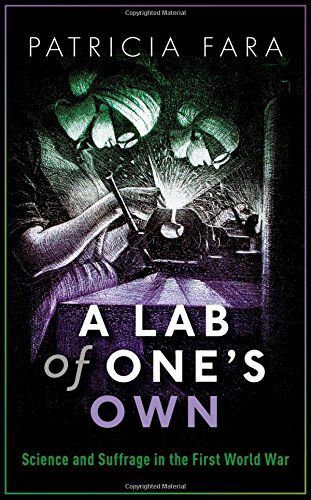
A Lab of One's Own Science and Suffrage in the First World War
A Lab of One's Own describes the experiences of some extraordinary but sadly neglected scientific women who tasted independence, responsibility, and excitement in World War One. Understanding the past is crucial for improving the future, and Patricia Fara examines how inherited prejudicescontinue to limit women's scientific opportunities.Suffragists aligned themselves with scientific and technological progress. Defying arguments about intellectual inferiority and child-bearing responsibilities, during the War they won support by mobilising women to enter conventionally male domains, including science, industry, medicine, and themilitary. A Lab of One's Own reveals these women's stories, celebrating successes and analysing setbacks. In 1919, the suffragist Millicent Fawcett declared triumphantly that "The war revolutionised the industrial position of women. It found them serfs, and left them free." She was wrong: although women hadhelped the country to victory and won the vote for those over thirty, they had lost the battle for equality. Men returning from the Front reclaimed their jobs, and conventional hierarchies were re-established - although now the nation knew that women were fully capable of performing worktraditionally reserved for men.